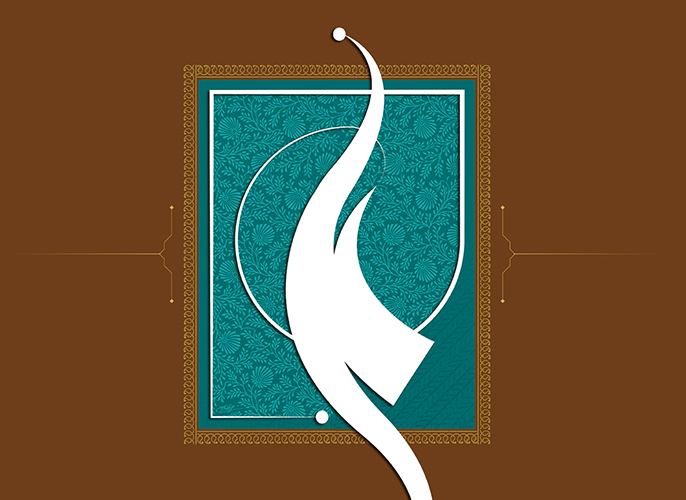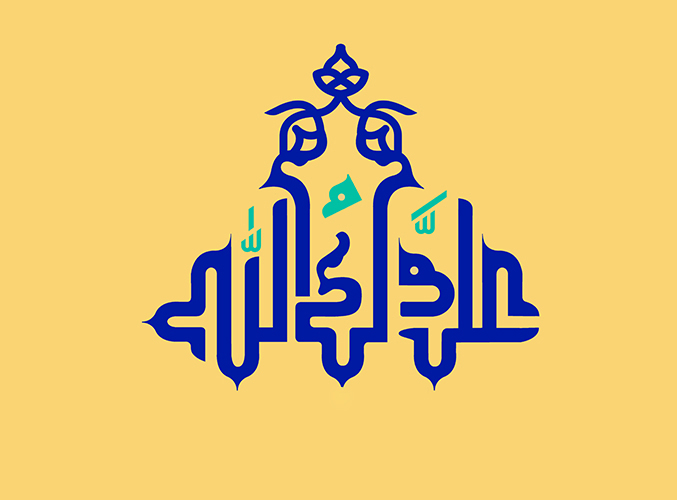At a time when a severe famine had broken out in Arabia, Abu Talib's financial condition was difficult; indeed unbearable. To reduce his uncle's financial problems, the Prophet took his son, Ali, to his own house and took care of him and raised him like an affectionate father.1 He had great talent and peerless intelligence. He obeyed the Prophet most sincerely. He soon became quite aware of the Prophet's truthfulness, and, so when he was but ten years old, he accepted the Prophet's faith with perfect awareness, thus becoming the first male to adopt Islam and to believe in the divine faith of the Prophet.2
THE PRESENTATION OF RITUAL PRAYERS AS A RELIGIOUS DUTY
After monotheism, worshipping the One God, the first duty that became incumbent upon the Holy Prophet and his followers was the ritual prayer, which in fact demonstrates the significance of ritual prayer as the basis of man's relation to God and as a way of giving thanks for God's endless blessings. So the great leaders of Islam, especially the Holy Prophet of Islam, have laid great emphasis on ritual prayer, saying, Ritual prayer is the pillar of faith3 and Anybody who disregards the ritual prayer will not enjoy our intercession with God on the Day of Judgment'.4
Almighty God described the nature of ritual prayers and the way to perform them through Gabriel to the Prophet, who taught it to Ali and Khadijah and also ordered congregational ritual prayers.5
Three Years Of Practical Propagation
For three whole years after the actualization of the prophetic mission of the Prophet, he propagated his faith in secret because the corrupt environment of Arabia, which had been polluted with idolatry and paganism for centuries, was by no means ready for the open propagation of Islam, which is perfect monotheism and opposed to any kind of polytheism.
In the beginning, the Prophet was faced with extremely difficult problems and obstacles that seemed to prevent him from achieving his divine goal - the propagation of Islam. Thus the Holy Prophet of Islam praised the One God before the eyes of the idolaters who worshipped numerous gods and whose worshipping assumed the form of whistling and clapping. He performed the ritual prayers, which included spiritual discourse and praise of Almighty God, Who has no partner nor any peer. The Prophet, accompanied by Ali and Khadija, went to the crowded places like the Masjid ul-Haram and Mana and performed the congregational ritual prayers before the eyes of the enemies of Islam and thus, through his practice, fought polytheistic faiths.6
Afif, a merchant of that time, has said, I had gone to Abbas, the son of Abdul Muttalib, on business, when suddenly I observed that a man entered the Masjid ul-Haram, looked up at the sky and the sun and stood praying in front of the Ka'aba. A little later, a woman and a boy came in and accompanied him in his prayer. I asked Abbas about that religion of which I had not yet heard! Abbas said, "This man is Muhammad (peace and the mercy of God be upon him and his descendants), the son of Abdullah. He believes that his God is the Creator of heavens and earth and that God has assigned him to guide people. For the time being his faith has no believers other than these three people. This woman you see is Khadijah, the daughter of Khuwalid, and this boy is Ali, the son of Abu Talib, who have accepted his faith '.7
In this way the Holy Prophet of Islam went on with his divine task until gradually the number of Muslims increased and, contrary to the ill-wishes of the opponents of Islam, this faith prevailed. When the atmosphere became suitable for the open propagation of Islam, the Prophet was divinely ordered to act accordingly.
THE INVITATION TO HIS RELATIVES AND THE FIRST MIRACLE
The propagation through practice of Islam by the Holy Prophet and the increase in the number of his followers paved the way for the open invitation of the people to Islam. God commanded the Holy Prophet of Islam to invite his close relatives. And warn your nearest relatives' (26:214).
In this way, backbiters could not say, Why do you not call your own relatives to worship the One God and warn them of God's severe punishment?' Moreover, the support of the relatives of the Prophet would help the promotion of Islam. So the Holy Prophet told Ali to prepare a meal and invite their relatives, who numbered about 40. After preparing the meal, Ali invited them. All the relatives of the Holy Prophet accepted the invitation and ate the meal prepared by the blessed hands of Ali.
Although the food was not sufficient for even one person, all 40 people were full after eating that blessed food and, strangely enough, the food had not diminished at all. This amazed all of them but the obstinate Abu Lahab, who said without thinking, This is magic and charms'. The foolish man disregarded the fact that magic and charms cannot feed people!
On that day the Prophet said nothing about the matter. Perhaps his silence was due to the fact that he wanted them to realize the difference between a miracle' and magic' because if magic were the cause the guests would feel hungry after leaving the house of the Holy Prophet.
Since this gathering did not give any favorable result, the Holy Prophet invited them for the next day. Again the same reception was repeated and all were filled. Yet the food was not reduced even after the meal was over.
Then the Prophet said, O sons of Abdul Muttalib. God has assigned me to warn you of the painful torments of the wrongdoers and give you the good news of His reward to the pious believers. Become Muslims and follow me to achieve salvation. I swear by Almighty God that among all Arabs I do not know anyone who has brought his people anything better than what I have brought you. I have brought you prosperity and salvation both in this world and in the hereafter. The Gracious God has commanded me to call you all to worship Him. Now which one of you is willing to help me with the task? Anybody who announces his readiness to help me will be my brother, my successor, and the executor of my will'.
Nobody answered but Ali, who was the youngest. He stood up and said, "O Prophet of God. I am your assistant. I am your supporter".
The Prophet asked him to sit down. He repeated the same saying three times but no one except Ali replied to him. Then the Prophet pointed to Ali and said: "He is my brother, my successor and the executor of my will among you. Listen to him and obey him"8
It was on this very day that a number of people came to believe in the faith of the Holy Prophet of Islam, but ignorance and bigotry hindered some of his relatives from believing in his message. However, this gathering was effective in gaining support for the Holy Prophet.
In addition to the fact of the extraordinary event - 40 people being fed with a small amount of food - there is another remarkable point in this event - the remarks the Holy Prophet made about his cousin Ali on that day. They clearly prove the fact that Ali was the Prophet's righteous successor and Caliph, and thus we must regard Ali as the successor of the Holy Prophet of Islam.
Thus the way was paved for the public invitation of the people to Islam and open propagation of this divine faith. The Prophet demonstrated indefatigable perseverance in fulfilling this divine duty and did not stop his invaluable teachings, outreach and struggles for a single hour. It was then that the magnificent banner of Islam was hoisted and truth began to be promoted.
1-Sireh ibn Hisham, Vol. 1 p. 246; Bihar al-Anwar, Vol. 18, p. 208
2- Ibid., Sireh, p. 245; Bihar al-Anwar, p. 188; al-Ghadir, Vol. 3, p. 219-214; Tarikh Tabari, Vol. 3, p. 1160
3- Wasa'il al-Shi'ah, Second edition, 1384 A.H.L, Vol. 3, p. 16,17.
4- Ibid.
5- A'lam al-Wara p. 37; Jami' a-Ahadith Shi'ah, Vol.2, p. 31. It is to be noted that at that time each of the prayers were two cycles (rak'at).
6- Tarikh Tabari, Vol. 3, p. 1122.
7- A'lam al-Wara p. 38, printed in 1390; Tarikh Tabari, Vol. 3 p. 1162.
8- Tarikh Tabari, Vol. 3 p. 1171-1173; Tafsir Majma' al-Bayan, Vol 7, p. 206; Bihar al-Anwar, Vol. 18 p. 192. This point is confirmed by all Islamic as well as non-Islamic historians and is among the confirmed facts of History. Al-Ghadir, Vol. 2, p. 278


















